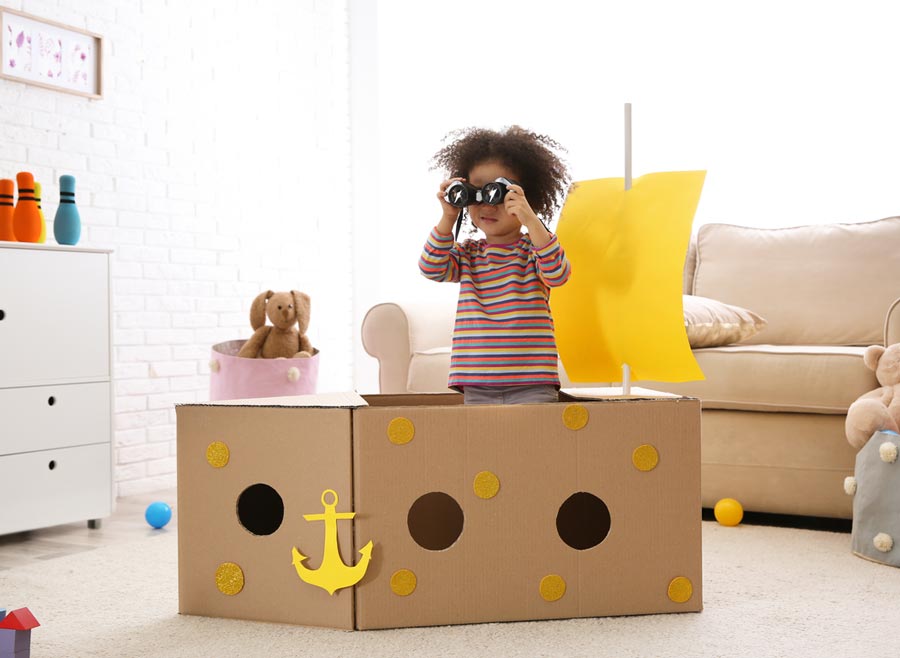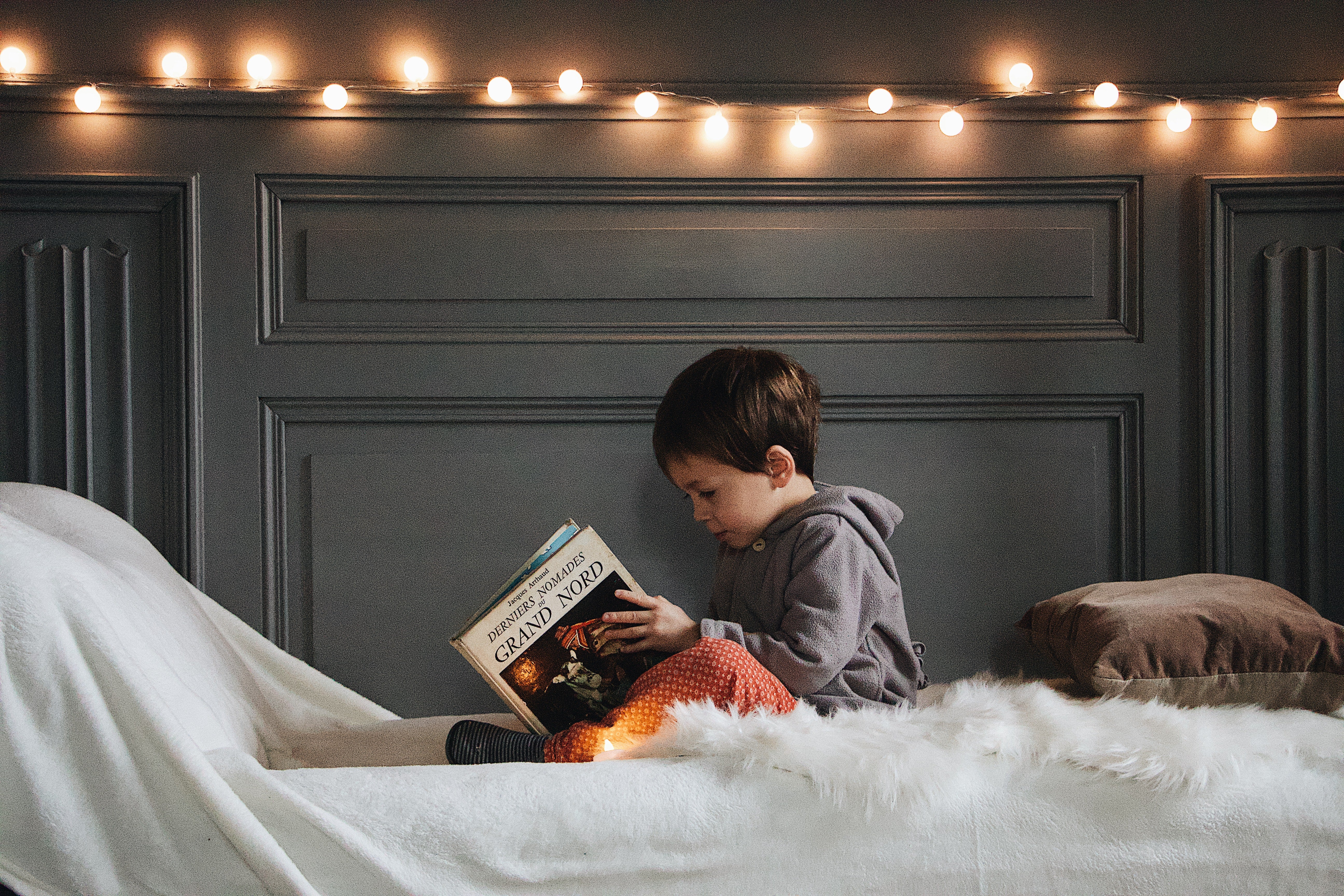How To Encourage Self Expression in Children

Self-expression is crucial to a child's development. Now, what is self-expression? When children are encouraged to express their feelings, thoughts, and ideas openly, it is called self-expression. It makes them grow into confident and open adults. We cannot stress enough the importance of allowing children to express themselves. They need an environment of respect, love, and support to reveal their inner selves and thus discover who they are and what they like. Let's explore the importance of self-expression at a young age and give you a list of activities to encourage a child to express their feelings
Importance of Self-Expression In Young Age
- It develops their communication skills so that they can communicate their emotions, feelings and needs effectively.
- It fosters their creativity and allows them to think outside the box.
- Their emotional well-being improves, leading to better emotional health and resilience.
- It develops empathy among children and encourages individuality.
Ways to Encourage Self-Expression in a Child
Children reveal themselves when free to express their inner needs, wants and preferences.
Generally speaking, there are three broad types of self expression activities.
1) Artistic expression
2) Playful expression
3) Building expression
4) Talk about your feelings
5) Create an Open Dialogue
This is how children express themselves, and you should be there, for them, as a parent. Engage in their activities, support and encourage them.
Artistic Expression
Give your children some colour pencils and paper, and they'll draw, paint, colour on and on. However, do not ignore them in a corner, thinking they paint some jolly but meaningless little monsters because they don't do that. This form of artistic expression can provide solid clues as to what your children might be feeling or going through in their day-to-day activities.
Engage in conversations with them. Maybe even colour together to learn more about your children's fears and feelings. Invent and encourage new ways to have fun, like finger-painting, sketching, even writing or painting your nails together.
Help children express themselves creatively by allowing them to draw, paint and sketch freely. This creative expression will open their mind and free their spirit, giving them confidence for the future. Within those few moments when your child is choosing the next colours, new thoughts and ideas are forming in his mind. Therefore, if he's in a loving, caring and inspiring environment, he will express those ideas freely and openly to you.
You can also let them play with safe and organic makeup products specially designed for kids. It will help them explore their creative beauty expressions. Thus, if your children want to play with more nail polish colours, they'll tell you about it openly. If they want you to help them draw or paint, they'll ask and engage you in their artistic self-expression activities because they know you support them. This way, your little ones will feel confident and secure in expressing their creativity and desires.
Playful expression
Play is a form of self-expression for children. Try to make each activity a form of play for your children. This way, they'll enjoy it and also learn. For example, if your children are having a tough time taking a bath, make bath time playtime and add some fizzy, fun, hypoallergenic and odour-free bath bombs to the mix. You can make up stories and let them unfold at bath time.
You can turn countless activities into play, and your children will love them and open up more. Play is also a great social glue that binds together children of the same age. They learn to negotiate, strike up friendships and cooperate with one another.
Through play, children also learn what they like and what they prefer. Some might prefer to be the superhero in the game. Others might want to be policemen or princesses. Therefore, they express their preferences, ideas, feelings, and thoughts.
What is even more important is that they learn to understand others' emotions through their own. They learn empathy and can feel when another child is unhappy or annoyed. Encourage them to express their empathic feelings towards their fellow children and let people around them know how they feel. If they love another child's toys, encourage them to say it. Teach them about compliments and how to express them.
Building Self Expression
Building self-expression refers to the activity of building objects. We're talking about plays that have a finite, quantifiable result – a dollhouse, a model house, etc. These things require following specific instructions, and your child will not feel happy at all times during the process. Teach and encourage them to get over inevitable bumps that might appear in their road to progress.
It is the perfect time to let them express their insecurities, fears, and even their will to give up mid-way to completing the model car, Leggo.
How does creativity support children's development? Well, here's a good example where the little one is faced with a real-life situation where they can either give up or try to find new ways to move on and finish building that dollhouse. By having to follow some instructions for building a robot, your children will become more aware of the role of guidelines and rules in life. And that's a tough one. It's good if they learn it while still very young.
Talk about your feelings
Create a protected environment where children can express their feelings openly. Sharing your feelings encourages children to share theirs. So, regularly talk to your children about your own feelings.
You can leverage specific situations like happy moments or any challenging experiences to discuss emotions. It helps child articulate their feelings more clearly and enhances their emotional literacy.
Create an Open Dialogue
Create an environment of open communication. It is advisable to ask them daily about their day and how they felt to encourage creative expression. Show interest in their talks and be an active listener.
Don't interrupt them when they are speaking. Rather, ask them follow-up questions so that they feel you are genuinely interested.
This practice makes your child feel valued and that their voice matters. And as the years pass by, they feel more confident in expressing themselves.
How else can you explore self-expression at home?
Explore self-expression a home through the following activities –
Role playing and dressing up
Role play is an interesting way to express different parts of the kid's personality. Bring them costumes, props, chemical-free makeup products and accessories and let their imagination reach higher as they dress up in their favourite character. Remember to buy safe, chemical-free, organic and natural makeup items to prevent your child from developing any allergies further. Visit Miss Nella for more information on such products.
Music and Dance
Music and dance are excellent forms of self-expression and creative expression. You can put your child in music classes where they can learn to sing or play any musical instrument. It encourages them to experiment and create their own tunes. Additionally, you cannot deny the importance of dancing as a form of expression. Dancing is an outlet that not only helps boost confidence through self-expression but also maintains a positive body image.
Journaling and storytelling
Help your children learn the importance of keeping a journal where they can write about their day, dreams and thoughts. For younger children, ask them to tell you anything or a story and write it down for them. You can even motivate them to create their own storybooks.
Conclusion on Self Expression in Children
A child who is comfortable expressing his feelings and preferences will grow up to be a confident, creative individual, better equipped to navigate the vagaries of this world. Nurturing self-expression in children is not just about encouraging them to share their thoughts and feelings—it's about helping them discover who they are and how they relate to the world around them. By providing a safe, loving, and supportive environment, you can guide your child through the essential process of self-discovery, fostering their creativity, confidence, and emotional intelligence. So, help your children practice their self-expression skills, participate in their activities and watch them become accomplished adults.
FAQs
1. What is self-expression in children?
Self-expression in children is the ability to openly share their thoughts, feelings, and ideas. It helps them develop confidence, creativity, and emotional intelligence as they learn more about themselves and the world around them.
2. What is a self-expression tool?
A self-expression tool is any activity or medium that allows children to convey their emotions, thoughts, and creativity, such as drawing, playing, role-playing, or journaling.
3. What is the power of self-expression?
The power of self-expression lies in its ability to boost a child's confidence, enhance their communication skills, and foster creativity. It also promotes emotional well-being and empathy, helping children develop into well-rounded individuals.
4. How is the language used for self-expression?
Language is a key tool for self-expression, allowing children to articulate their feelings, thoughts, and ideas. Through open dialogue, storytelling, and journaling, children learn to communicate more effectively and develop their emotional literacy.
Popular posts
Warum Rollenspiele genauso wichtig sind wie Lernen
Kinder wissen, wie man spielt. Sie sind Meister darin und als Eltern sollten Sie sie bei ihren Rollenspielen ermutigen und unterstützen. Sie können Polizisten, Maskenbildner, Prinzessinnen, Krieger, Köche oder alles davon gleichzeitig sein. Auch wenn Ihnen ihr fantasievolles Spiel vielleicht unbedeutend erscheint, sollten Sie wissen, dass Kinder in ihrem Rollenspiel lernen, Probleme zu lösen, zusammenzuarbeiten und ihr kreatives Denken einzusetzen. Sie entdecken sich selbst und die Welt um sich herum, während sie beim Spielen mit ihren Ängsten und Unsicherheiten umgehen. Rollenspiele sind Teil der komplexeren Entwicklungspsychologie von Kindern. Studien haben bemerkenswerte kognitive Vorteile gezeigt, insbesondere im Bereich der Sprachentwicklung.
Wie man ein selbstbewusstes Kind großzieht
Als Eltern ist Selbstvertrauen eines der schönsten Geschenke, die Sie Ihren Kindern machen können. Ein Kind, dem es an Selbstvertrauen mangelt, wird zögern, neue und herausfordernde Dinge auszuprobieren. Darüber hinaus kann sich dies auch in eine Angst verwandeln, zu versagen und andere zu enttäuschen, wenn sie erwachsen werden. Nichts lähmt einen Freigeist mehr als die Angst vor dem Versagen und der ständige Versuch, es allen recht zu machen.
10 Ideen für Partygeschenke für Kinder
Wenn der Geburtstag Ihres Kindes vorbei ist, muss das Abschiedsgeschenk für Ihre Gäste eine kultige Partytüte sein, die bis zum Rand mit aufregenden Partygeschenken gefüllt ist. Was genau macht also die perfekten Partygeschenkideen aus? Eine Geburtstagsparty für Ihr Kind zu veranstalten, kann einer der schönsten Momente der Elternschaft sein. Zu sehen, wie Ihr Kind seinen besonderen Tag im Kreise von Freunden und Familie genießt, ist wirklich eine unbezahlbare Erfahrung.
10 Kinderbücher zum Welttag des Buches
Kinder lieben das Lesen. Man muss nur das richtige Buch finden und es ihnen geben. Aber welche Kinderbücher sind die besten? Auf diese Frage gibt es keine einfache Antwort. Natürlich werden Sie versucht sein, Ihren Kindern die berühmten Kinderbücher zu geben, die Ihre Kindheit begeistert haben. Das können Sie tun. Sie können auch einige der neuesten erschienenen Titel und Bestseller recherchieren, damit die Themen aktueller und moderner sind.





